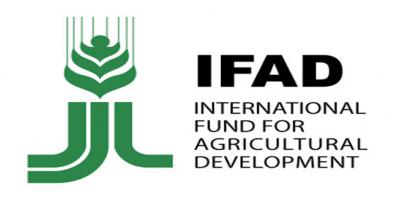IFAD demonstrates commitment to Kenya

ROME - Cornelia Richter, Vice-President of the International Fund for Agricultural Development (IFAD) completed her visit to Kenya, in which she met with government officials to discuss the progress of development investments and to encourage stronger cooperation between public and private sector.
She also met directly with the Kenyan families benefiting from the initiatives, including women and young people, giving her an intimate insight into how the projects have improved their lives.
Richter emphasized the duty of care for Kenya’s population, saying “with more than 75 percent of Kenya’s population living in rural areas, IFAD is strongly committed to investing in the rural women and men who are so important to ensuring food security in these communities.”
Agriculture makes up approximately 26 percent of GDP in Kenya and over 40 percent of employment and consequently is of central importance in Kenya’s economy.
Due to the exhaustion of natural resources and the rising population, the level of poverty and food insecurity is ever increasing. IFAD, the Government of Kenya and other partners are channeling their resources into combating poverty and food insecurity, by providing financial services to independent farmers and offering support.
During the five-day visit, Richter met with Deputy President William Ruto, Cabinet Secretary of the Minister of Agriculture and Irrigation, Mwangi Kiunjuri; Principal Secretary of Ministry for Water and Sanitation, Joseph Irungu; Principal Secretary of National Treasury, Kamau Thugge; Country Director of German Corporation for International Cooperation (GIZ), Stefan Opitz; Director General for United Nations Office in Nairobi, Sahle-Work Zewde and United Nations Resident Coordinator for Kenya, Siddarth Chatterjee.
Richter also met with the locals of the Nakuru County, where families are using a grant scheme from the Smallholder Dairy Commercialization Project in order to invest in dairy cows. The initiative also promotes good quality feed and training for animal care.
120,000 people have been reached through this project, with around 60 percent being women. IFAD’s assessment showed that the total milk production of the supported farmers had increased by 37 percent and had achieved a 31 percent higher selling price.
Since 1979, IFAD has funded 18 projects in Kenya, through which over 4.3 million rural Kenyan families have benefited and for which IFAD has personally contributed $376.3 million.
eh


